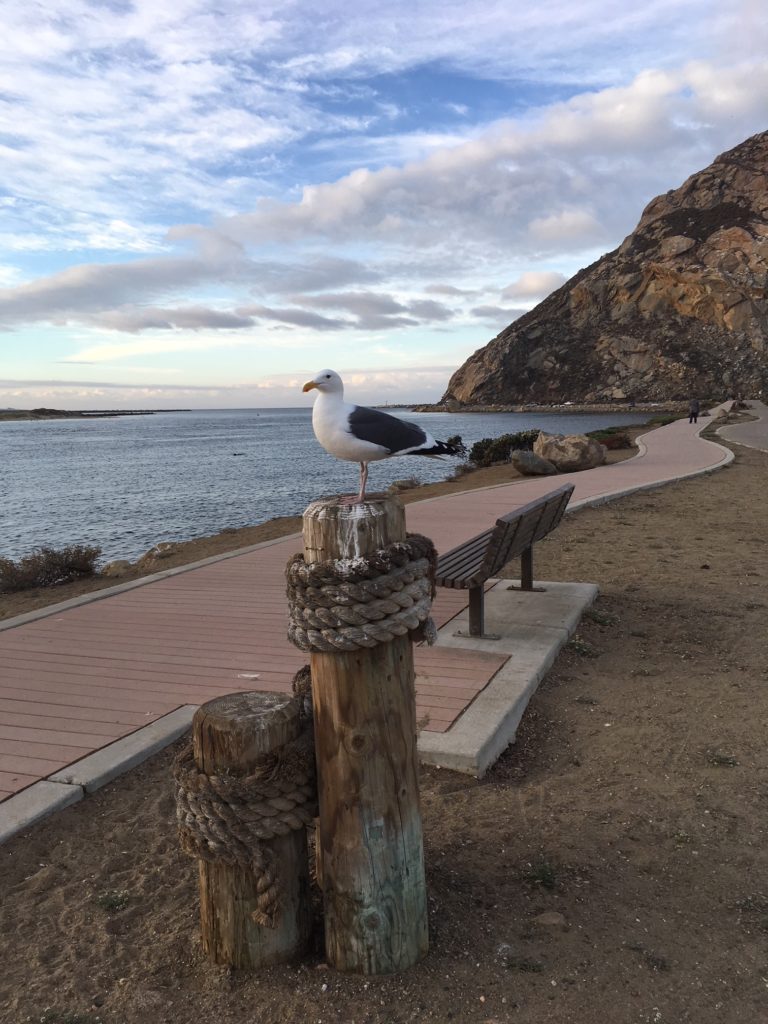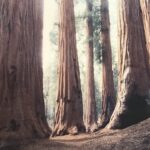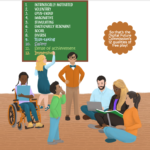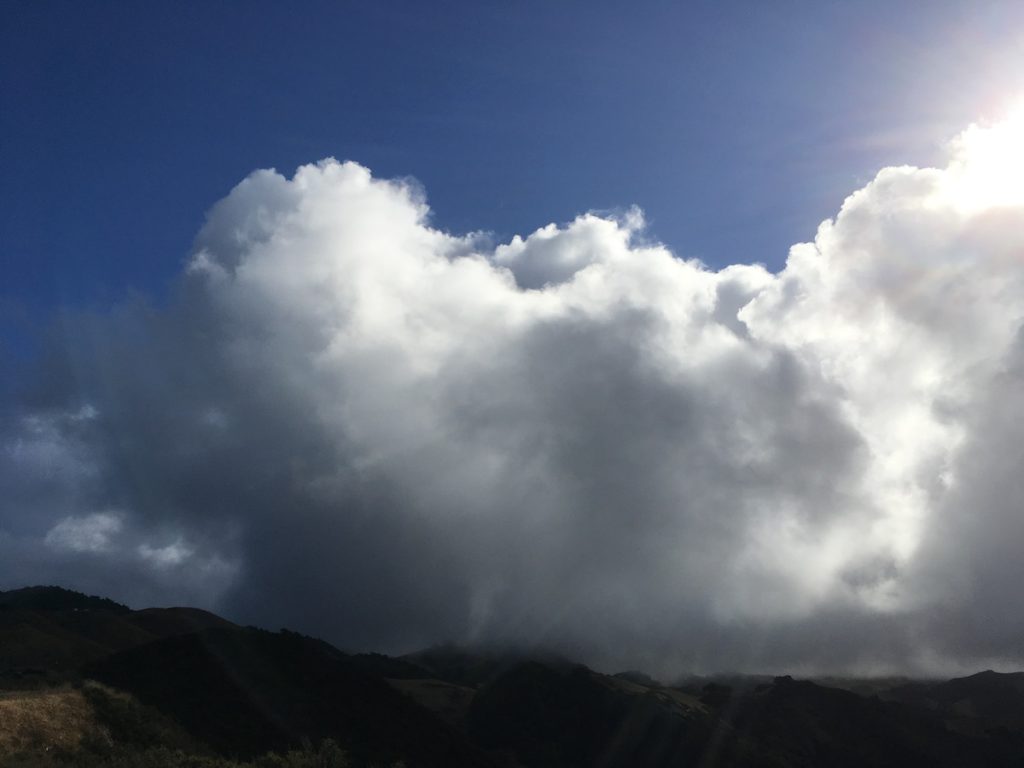
Life-changing rain arrived Wednesday, November 21 on the Central Coast and north. I have been living in the AQI (Air Quality Index) along with all the other residents of this part of the country. On one day, I noticed San Francisco was getting media coverage for having “the worst air quality in the world” that particular day. Gives a person great empathy for Beijing’s inhabitants when SF beats Beijing for a day. The recent rain moved the entire area from red to green almost instantly on the AQI map. I took this photo at the top of Highway 46 looking south towards Morro Bay. I stood there for a long time, turning a full 360, appreciating these enormous, beautiful clouds.
Note: Last year I wrote a 3-module unit on Air Quality Monitoring and Citizen Science. Let me know if you’d like more information about it. It’s a first draft, has a Creative Commons license, and is loaded with stories about citizen science projects about air (and water) quality.
In my last post, I wrote about listening to a few programs on NPR while driving south from my home in the Bay Area. I talked about Maryanne Wolf’s book, Reader, Come Home, and put out an invitation to join me in an experiment. That invitation is still open until Nov. 30.We start Dec. 1. Scroll down to see the invitation again—I revised it slightly. I hope some of you will join us. It’s a no pressure, no fail experiment.
In that same post, I briefly mentioned listening to an interview with Alison Gopnik, psychology and philosophy professor at University of California, Berkeley, making a mental note to read her book, The Carpenter and the Gardener, and finding that I already had it on my iPhone Kindle app. I had made it through the first chapter when I bought it in January of 2017 according to my highlights in the book on the app.
So, I picked it up and started reading. Here’s what I discovered. I have been moving easily and steadily through the book, reading at night on my iPhone. I haven’t paid much attention to how long I read exactly, but it’s about 30 minutes. I’m beginning Chapter 6 next. I enjoy and appreciate every paragraph. I am focused. I reread a few paragraphs. I highlight a lot. I find reviewing the highlights pretty useless on the phone but this is where the Kindle combination of phone/laptop really shines. On my laptop I can easily scroll through all my highlights for review, and find key ideas to consider more deeply. For example:
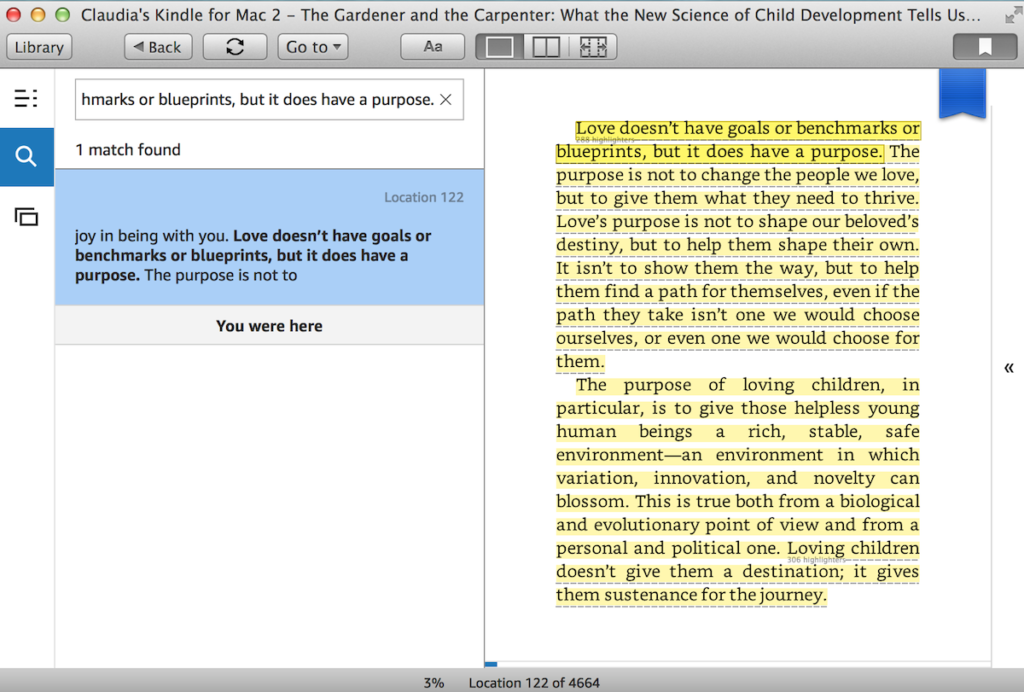
Noticing in my own reading life, where I read SO MUCH CONTENT as my livelihood, I think I am just becoming extremely discriminating about what books I read (and probably always have been). When the content connects with my fierce passions, and the writer is a great storyteller, despite my daily hours in “screen reading mode” per Maryanne Wolf’s work, I have no problem deep reading. So yay. Good to know. There is something here in how we think about reading and young people. I’d love to hear your thoughts.
What I am reading online: I found this piece on Edutopia this week—”The Benefits of Ear-Reading“—food for thought on considering reading today.
So here’s that invitation, again: Join me for an experiment. We’ll read the Deep Reading chapter in the book Reader, Come Home together, doing a similar process to Maryanne’s experiment that she describes in detail in the interview: 20 minutes a night (or morning or noon—whatever works for you, but I think choosing a particular time and being consistent might be useful), over 10–12 days. And we’ll discuss together in a Zoom video call at the end. During the 10–12 days, I’ll send out a daily email as a reminder and check-in. There’s no failure here, only awareness and insight. I am pretty certain the experience of at least attempting to read the Deep Reading chapter ofher book in depth will help us as we think about how, where, and when our children are reading, and the complex relationships with books and digital devices we all have today. And for those of us with children (and grandchildren) 0–5, I unabashedly believe her book is essential, thought-provoking reading. Of course, parents of children 0–5 will have the least amount of time to reallocate to any kind of reading, so for you, an audio version of the book is available on Audible. To participate, drop me a note with the message “I’m in.” I will follow up.
